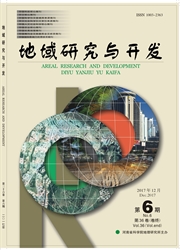

 中文摘要:
中文摘要:
加工制造园区往往是外来农民工集聚的空间,由于就业状况、收入水平、随迁家庭情况等差异,外来农民工可能选择不同的租住模式,从而与当地人形成不同的混居形态和交流环境,社会空间分异的方式和程度也会有所不同。以上海漕河泾出口加工区浦江分园的典型周边社区为研究对象,重点通过对居民日常生活空间和情感空间的调研访谈,初步探索了不同租住模式下社会空间的隔阂状态及其形成机制。研究显示,不同租住模式下,外来农民工与本地失地农民的接触方式和交流效率存在一定差异,而促进有效地交流对于消除隔阂具有重要价值,因此,租住模式的优化关键要有利于形成农民工与当地人平等、友好交流的环境。
 英文摘要:
英文摘要:
Exporting processing zones are often the gathering spaces for migrant workers. Being different in job, income and family structure, migrant workers may choose different renting patterns, which can lead to a different mixed state and communicating environment between migrant workers and local residents. All of these will have effects on socio-spatial differentiation. This paper, based on the field work around Caohejing Pujiang Park, explores the status of socio-spatial differentiation and how it takes place by studying the daily living space and emotional space. It is argued that there is different way and frequency of communicating between migrant workers and local residents in different renting method, to promote the effective communicating may be of great value in eliminating differentiation. Therefore, building a equal and friendly environment of communication between migrant workers and local residents is the key to optimize the renting methods.
 同期刊论文项目
同期刊论文项目
 同项目期刊论文
同项目期刊论文
 期刊信息
期刊信息
